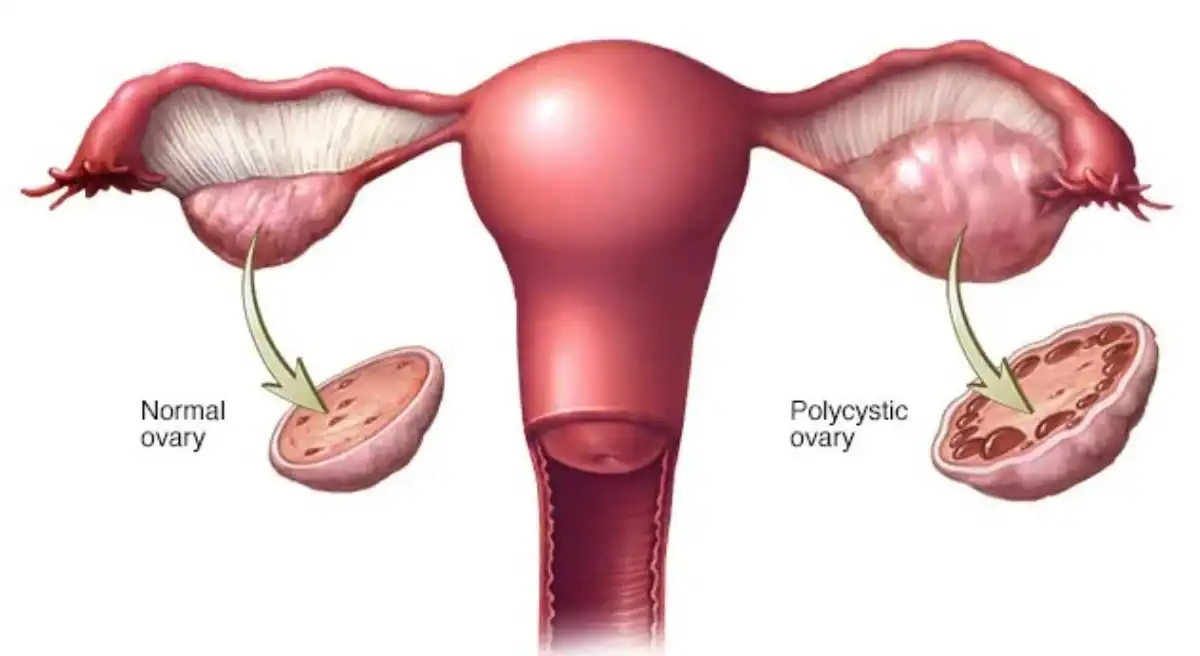Heart disease during pregnancy is prevalent in women with polycystic ovary syndrome (PCOS).
The risk factor in such cases has been found out to be coronary calcium
Women having PCOS are at an increased risk of developing conditions like high blood pressure, diabetes, dyslipidemia, and obesity.
As per a new study revealed by the Johns Hopkins Medicine researchers, women suffering from PCOS (Polycystic ovary syndrome) are linked to an enhanced risk of developing the risk of cardiovascular diseases during pregnancy.
The above study was published in the journal of the American Heart Association.
As per the latest update of pregnant women suffering from Polycystic ovary syndrome (PCOS), they can effectively reduce the risk of heart disease by adapting a combination of healthy lifestyle along with drug therapy.
What’s Polycystic ovary syndrome (PCOS)?
If you have an overview of this condition, almost 5-13% of women are affected.
The above condition causes abnormal periods along with the excess production of androgens (male hormones) and sometimes issues like infertility.
As per previous research conducted showing PCOS can be really linked to the risk of future cardiovascular diseases. But the new study reveals that it can also increase the risk of heart problems among them at the time of delivery.
Some of these problems include blood clots, abnormal heart rhythms, heart failure, a weak or enlarged heart (peripartum cardiomyopathy), high blood pressure, organ damage as compared with women without PCOS.
This is what the Erin Michos, M.D., associate professor of medicine at the Johns Hopkins University School of Medicine and corresponding author of the study has to say, “Oftentimes, women with PCOS are understandably concerned about the immediate effects, like an irregular menstrual cycle, excess body hair, weight gain and acne. However, the long-term cardiovascular complications are also a serious problem,” he said.
Never Miss:
- Multiple Heart Related Conditions Linked To Triple Dementia Risk
- Heart Disease Risk Soars after COVID, Even With A Mild Case
- Link between Prediabetes and Heart Attack Risk Identified
- Study Finds Testosterone Not Responsible for Heart Problems In Men
Heart Disease Risk in Pregnant Women with PCOS
Referring to the study, Michos stressed the need for women with PCOS to lead a healthy lifestyle not only at the time of pregnancy but also before and after that.
In their study, researchers analyzed the data of over 17 million U.S. births between the years 2002 and 2019.
The above data was drawn from the National Inpatient Sample. The data showed that among all the hospitalized deliveries, as many as 2 lakh of them had PCOS.
At the time of study, it increased the prevalence of PCOS with obesity due to any kind of hormonal disorder. The percentage of women with PCOS went 3 times from 2002 to 2019.
At this time, obesity also skyrocketed from 5.7% to 28.2% among women with PCOS. The researchers also noted that they were able to detect some of the PCOS instances due to better diagnosis and detection.
As per the latest health news, scientists adjusted patients with their race, age and some other conditions not related to PCOS which continued to be the sole and independent predictor of any sort of heart complications at the time of delivery.
The study included women with PCOS aged 31 versus 28 had somewhat higher prevalence of conditions like high cholesterol, obesity and diabetes. It also found black women with PCOS were at greater risk of developing conditions like preeclampsia and a number of other related conditions.
Salman Zahid, M.D., a resident physician in the Rochester General Hospital said, “Currently, the overall goal is to reduce the rising mortality rate among pregnant women in the U.S., with a mission of identifying risk factors. Our study shows that PCOS is indeed a risk factor for acute cardiac complications at the time of delivery and should be taken seriously,” he said.
The researcher also noted some other conditions prevailing in women with PCOS like heart disease, hypertension, type 2 diabetes, and dyslipidemia (an imbalance of lipids).
He further stated detecting issues like coronary artery calcification (CAC) earlier in women can help prevent the risk of developing a cardiovascular disease.
Source: Medindia.net
